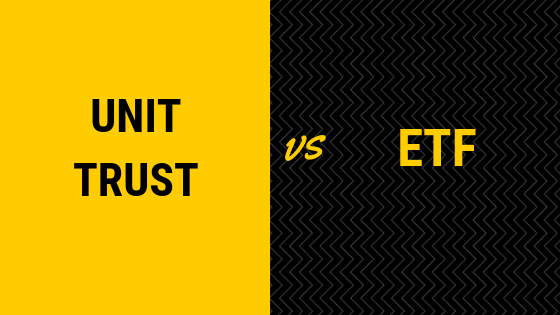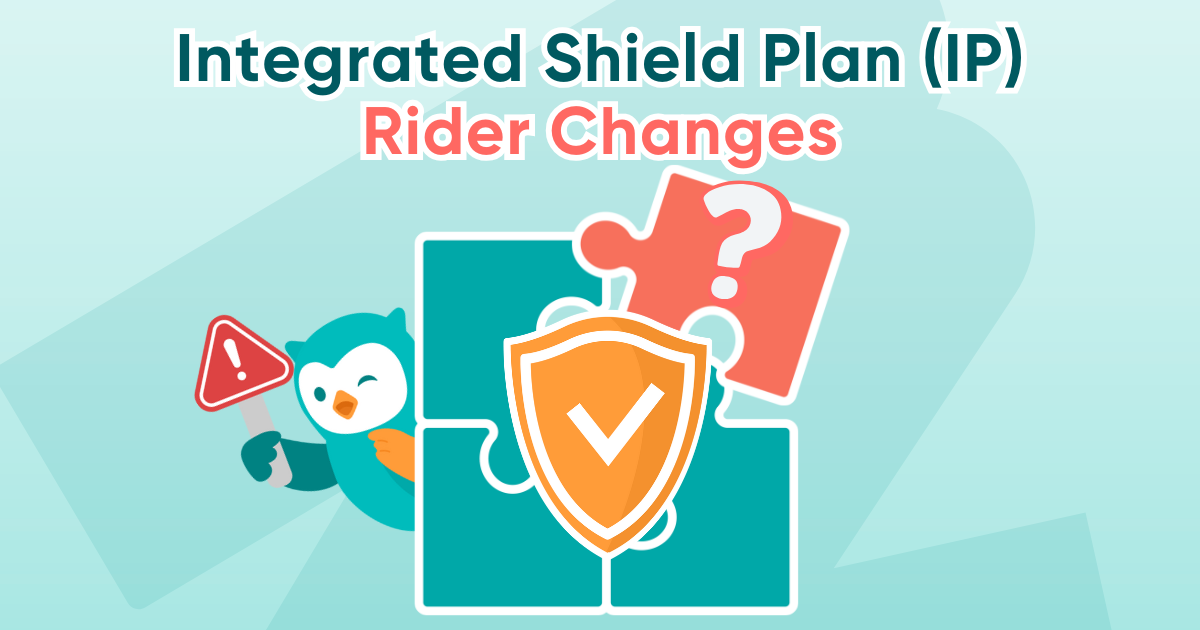Note: It was announced in November 2023 that MoneyOwl will be acquired by Temasek Trust to serve communities under a re-purposed model, and will move away from direct sale of financial products. The article is retained with original information relevant as at the date of the article only, and any mention of products or promotions is retained for reference purposes only.
______________
The difference between Unit Trust vs ETF and why you should look at other perspectives for investment
MoneyOwl believes in constructing low-cost portfolios that contain stocks and bonds worldwide. We use Unit Trusts to create these portfolios for our clients.
Some of the readers may have heard of the negative reputation of Unit Trusts in Singapore as being an expensive investment tool and should be avoided.
Unit Trust = Expensive, Lousy, Avoid at all cost
Consider this, a cup of Starbucks Coffee is expensive. If someone were to say a cup is expensive just because a cup of Starbucks Coffee is expensive, you will think that it is silly because it is the coffee inside the cup that makes it expensive.
Cup = Unit Trusts, Starbucks Coffee = High-Cost Investment Strategies
Similarly, Unit Trusts are just tools to carry out investment strategies. They are expensive because they are most commonly used to implement high-cost investment strategies. Therefore, when looking at an investment tool, it is the investment strategy that should be looked at instead of the tool by itself.
There are Unit Trusts that are used to implement low-cost investment strategies which makes them low-cost Unit Trusts. MoneyOwl uses low-cost Unit Trusts from Dimensional Fund Advisors which align with our investment philosophy to create our low-cost portfolios.
Why not use low-cost ETFs?
Let’s address this question by first introducing Exchange Traded Fund (ETF). ETFs, unlike Unit Trusts, have a good reputation as a cheap and good investment tool that everyone should invest in.
ETF = Cheap, Good, Must Have
Similar to a Unit Trust, an ETF is a tool that happens to be mainly used for carrying out low-cost investment strategies.

MoneyOwl has considered both low costs Unit Trusts and ETFs that can execute our investment philosophy. These are the considerations taken that led to our final decision.
1) Cost Aspects
Firstly, there is the total expense ratio on a portfolio basis. The total expense ratio is the yearly fee that is paid to the companies that create the funds.

For MoneyOwl, the low-cost ETFs are approximately 0.1% cheaper than the low-cost unit trusts.
Win – Low-Cost Passive ETF
It is in MoneyOwl’s investment philosophy to invest globally and many tax authorities around the world impose dividend taxes on foreign investors. Therefore, it is important for MoneyOwl to consider the impact of taxes on our investors.
Cost of tax = Tax Rate x Dividend Yield of Investment
For example:
The United States stock market makes up over 50% of the global stock market. The US Dividend Withholding Tax is a 30% tax rate on the dividends paid to foreign investors (Singapore).
SPDR S&P500 ETF – Dividend Yield is 1.85%.
Cost of Tax for Singapore Investors = 30% x 1.85% = 0.55%
For MoneyOwl:

For MoneyOwl, the low-cost unit trusts offer lower tax costs for our clients than the low-cost ETFs.
Win – Low-Cost Unit Trust
Tips: Remember to consider the cost of tax which is often hidden when you invest overseas. A low total expense ratio may not justify the high cost of tax that may be incurred.
The overall cost-savings for Unit Trusts are higher than ETFs for our clients.
2) Share Ownership Aspect
ETF can only be bought and owned on a per-share basis. Hence, when investing in an ETF, there are often instances when your investment amount may not be able to purchase a full share of the ETF.
Consider this, you have allocated a budget of $100 to buy soft drinks for a party. The soft drinks that you want to buy cost $1.50 per bottle. With your budget, you can only purchase 66 bottles of drinks and have $1 leftover. You are unable to use the $1 to buy 2/3 bottle of the soft drink. This is exactly how it works for an ETF.
MoneyOwl believes that the amount of money that you have set aside for investment, should be fully invested at all times. The cash that is not invested is an opportunity cost for you to grow your money. Thus, ETFs may prevent some clients from being fully invested.
There are platforms that allow users to purchase fractional ETF shares. However, there are some implications of such an arrangement. Using the same soft drink example, this means your $1 will buy 2/3 of a bottle of a soft drink while another person will buy the other 1/3. As a result,
- There is unclear legal ownership of the shares.
- Your portion of an ETF share may be force-sold when another owner of the same ETF share is attempting to sell.
MoneyOwl is not comfortable with such an approach.
On the other hand, Unit Trust allows investors to hold fractional units. This overcomes the issue of the opportunity cost of non-invested cash from using ETF and any unclear ownership issues with implementing fractional shares for ETF.
Note: The advantage of fractional shares ownership in a Unit Trust benefits clients engaging in small regular monthly investments the greatest.
Win – Unit Trust
Additional consideration – currency exposure of global bond funds:
Specifically, for global bond funds, MoneyOwl would like to select funds that are hedged* to Singapore Dollars. This is because the fluctuations of currency rates are larger than the potential gain in a bond fund and this means that an unhedged global bond fund will add unnecessary volatility to our portfolio. As for global equities, they should remain unhedged in terms of foreign currency, as currency exposure provides potential diversification benefits. This is in line with fund management best practices.
Conclusion: Unit Trust over ETF for MoneyOwl
ETFs are great but it is important to understand their limitation. At the moment, the low-cost Unit Trusts from Dimensional Fund Advisors are simply better tools than low-cost ETFs to execute MoneyOwl’s investment philosophy. As you are looking to invest, MoneyOwl encourages you to look at more perspectives other than Total Expense Ratio in making your decision as there may be hidden costs that make your investment more costly.
*Currency hedging is the act of offsetting the movement between a pair of currency using financial instruments.




